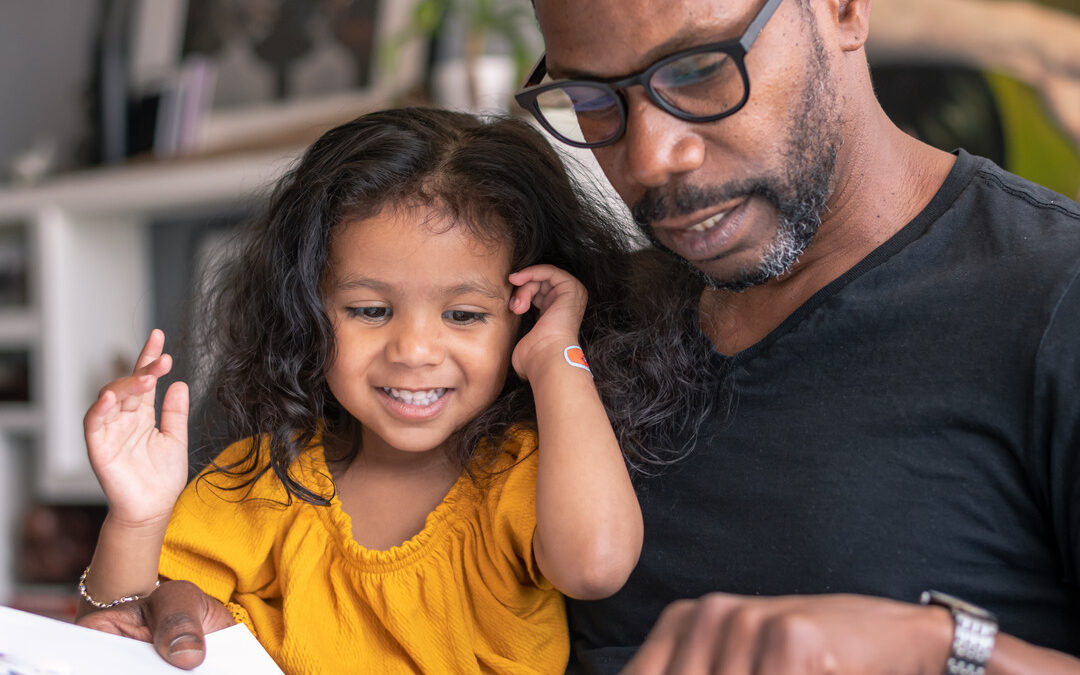Before They Can Read, They Need to Hear
The world of books is a beautiful one, full of adventure and knowledge. But before children can embark on that journey, they need a gift from the adults in their lives: words.
Over the last twenty years, there has been an emphasis on reading aloud to young children. Reading daily to children results in them being exposed to over a million words by the age of five. But as research continues, we are learning that talking with children, not just to them, lays the foundation for strong reading skills.
Word Exposure
We’ve all had the experience of seeing a word we are unfamiliar with and skipping it while reading. Sometimes, from context clues, we can guess what the word means, or we may develop an idea of how it’s pronounced. When children are reading with parents, this can be an excellent learning opportunity. However, if they are reading on their own, missed words are missed opportunities.
Research from the National Institute of Health shows that children exposed to a wide variety of words in their early years perform better on reading assessments later in school. When children have heard a word before, they’re far more likely to recognize, decode, and understand it while reading. That’s why unique books, especially those with rare and diverse language, are a powerful foundation for early literacy,
Beyond ABC’s
We all know the ABC song, but true literacy starts when those letters connect to the real world. From “Z is for Zamboni” to “ABCs of Engineering,” there are alphabet books to match every interest. When children see letters associated with things they love (such as bugs, trucks, vegetables, sports, or history), they build stronger comprehension and a deeper connection to literacy. Those books also provide opportunities for exposure to diverse and rare words.
Playing with Words
“The more you read, the more you know. And the more you know, the more places you’ll go.”-Dr. Suess
Generations of children have giggled through the rhymes and tongue-twisters of Dr. Seuss. His playful use of language shows that words can be fun, silly, and full of possibility.
Playing with words is an empowering experience for children. When we permit children to explore nonsense words, we let them build crucial skills. They notice sound patterns, experiment with how letters work together, and mimic rhythms. These early experiences pave the way for phonics, decoding, and confident reading later on.
The Importance of Conversation
As research continues in early childhood literacy, we have learned more about the importance of conversation. Even with small children, giving pauses to let them gurgle or practice their words engages their brains more deeply, fostering neural connections. Educators look for 2-3 “conversational turns” to ensure deep connections. These “turns” are fostered by asking open-ended questions and encouraging follow-up, so that children continue to engage in the conversation. Teachers are trained to find opportunities throughout the day to have these conversations; during circle time, at the lunch table, and while doing small group activities.
Open-ended questions are a great way to foster conversations. Instead of asking “Did you play outside today?” which can be answered with a yes or no, asking “What did you play with today?” can allow children to describe what they did in their day. Asking follow-up questions, “Oh, how far did you kick the ball?” Let’s children feel safe to explore their language skills and tell a story.
Words Today, Success Tomorrow
When it comes to setting children up for success, it is often the small everyday acts that can make the biggest difference. Regularly exposing our children to new and diverse words gives them a leg up when they encounter that word in their future studies. Exposing children to the magic of conversation deepens their understanding of language and strengthens their love of communication. Giving children familiarity and the room to experiment with language makes them confident as they move into school.
Written by Abby Knight, Assistant School Director

